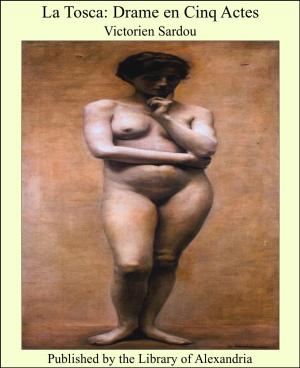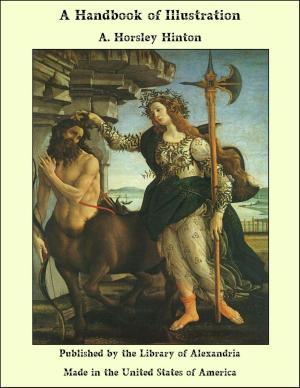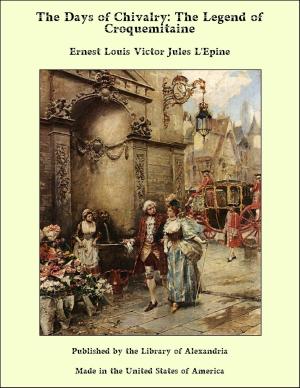For the Term of His Natural Life
Nonfiction, Religion & Spirituality, New Age, History, Fiction & Literature| Author: | Marcus Andrew Hislop Clarke | ISBN: | 9781465525451 |
| Publisher: | Library of Alexandria | Publication: | March 8, 2015 |
| Imprint: | Language: | English |
| Author: | Marcus Andrew Hislop Clarke |
| ISBN: | 9781465525451 |
| Publisher: | Library of Alexandria |
| Publication: | March 8, 2015 |
| Imprint: | |
| Language: | English |
TO SIR CHARLES GAVAN DUFFY My Dear Sir Charles, I take leave to dedicate this work to you, not merely because your nineteen years of political and literary life in Australia render it very fitting that any work written by a resident in the colonies, and having to do with the history of past colonial days, should bear your name upon its dedicatory page; but because the publication of my book is due to your advice and encouragement. The convict of fiction has been hitherto shown only at the beginning or at the end of his career. Either his exile has been the mysterious end to his misdeeds, or he has appeared upon the scene to claim interest by reason of an equally unintelligible love of crime acquired during his experience in a penal settlement. Charles Reade has drawn the interior of a house of correction in England, and Victor Hugo has shown how a French convict fares after the fulfilment of his sentence. But no writer—so far as I am aware—has attempted to depict the dismal condition of a felon during his term of transportation. I have endeavoured in "His Natural Life" to set forth the working and the results of an English system of transportation carefully considered and carried out under official supervision; and to illustrate in the manner best calculated, as I think, to attract general attention, the inexpediency of again allowing offenders against the law to be herded together in places remote from the wholesome influence of public opinion, and to be submitted to a discipline which must necessarily depend for its just administration upon the personal character and temper of their gaolers. Your critical faculty will doubtless find, in the construction and artistic working of this book, many faults. I do not think, however, that you will discover any exaggerations. Some of the events narrated are doubtless tragic and terrible; but I hold it needful to my purpose to record them, for they are events which have actually occurred, and which, if the blunders which produced them be repeated, must infallibly occur again. It is true that the British Government have ceased to deport the criminals of England, but the method of punishment, of which that deportation was a part, is still in existence. Port Blair is a Port Arthur filled with Indian-men instead of Englishmen; and, within the last year, France has established, at New Caledonia, a penal settlement which will, in the natural course of things, repeat in its annals the history of Macquarie Harbour and of Norfolk Island
TO SIR CHARLES GAVAN DUFFY My Dear Sir Charles, I take leave to dedicate this work to you, not merely because your nineteen years of political and literary life in Australia render it very fitting that any work written by a resident in the colonies, and having to do with the history of past colonial days, should bear your name upon its dedicatory page; but because the publication of my book is due to your advice and encouragement. The convict of fiction has been hitherto shown only at the beginning or at the end of his career. Either his exile has been the mysterious end to his misdeeds, or he has appeared upon the scene to claim interest by reason of an equally unintelligible love of crime acquired during his experience in a penal settlement. Charles Reade has drawn the interior of a house of correction in England, and Victor Hugo has shown how a French convict fares after the fulfilment of his sentence. But no writer—so far as I am aware—has attempted to depict the dismal condition of a felon during his term of transportation. I have endeavoured in "His Natural Life" to set forth the working and the results of an English system of transportation carefully considered and carried out under official supervision; and to illustrate in the manner best calculated, as I think, to attract general attention, the inexpediency of again allowing offenders against the law to be herded together in places remote from the wholesome influence of public opinion, and to be submitted to a discipline which must necessarily depend for its just administration upon the personal character and temper of their gaolers. Your critical faculty will doubtless find, in the construction and artistic working of this book, many faults. I do not think, however, that you will discover any exaggerations. Some of the events narrated are doubtless tragic and terrible; but I hold it needful to my purpose to record them, for they are events which have actually occurred, and which, if the blunders which produced them be repeated, must infallibly occur again. It is true that the British Government have ceased to deport the criminals of England, but the method of punishment, of which that deportation was a part, is still in existence. Port Blair is a Port Arthur filled with Indian-men instead of Englishmen; and, within the last year, France has established, at New Caledonia, a penal settlement which will, in the natural course of things, repeat in its annals the history of Macquarie Harbour and of Norfolk Island















